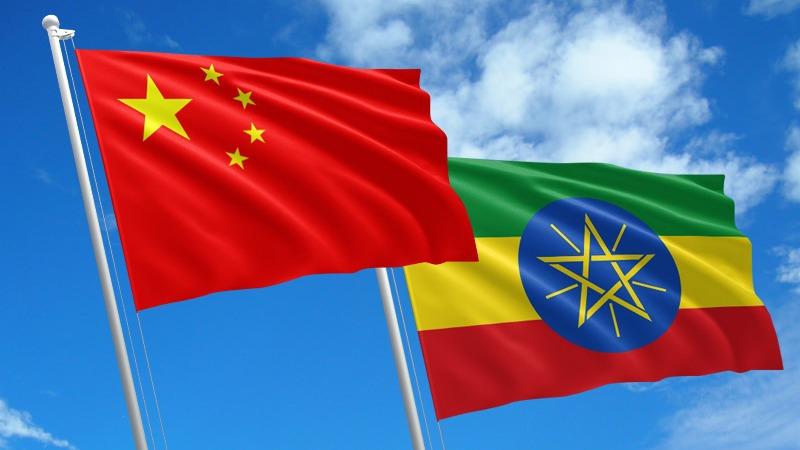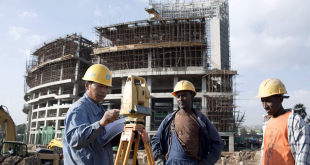
by Melaku Mulualem K.
Ethiopia and China are countries with long history. They are well known for their ancient civilizations. Formal diplomatic relations between the two was established on 24 November 1970. In celebrating the Golden Jubilee of the diplomatic relations, both governments have renewed their commitments to work together by making their national interests at the center.
Covid-19 is a threat to both countries and the world at large; hence it needs a strong cooperation in an effort to avert its negative impacts on human lives and to minimize economic, political and cultural impediments. The spread of the COVID-19 is increasing alarmingly in Ethiopia in recent times, unless urgent measures are taken, in the coming months many people could lose their lives. Vaccination to vulnerable sections of the society can save many lives in doing so China is a reliable partner for avoiding incalculable damages in Ethiopia.
Fight against Covid-19 and “Health Silk Road”
The Belt and Road Initiative (BRI) of China is a global project, which is designed for the benefit of China and the world at large. Ethiopia is signatory to this initiative and started gaining advantages out of it. Along the route of the project, a lot of infrastructures have been constructed. Ethio-Djibouti railway is part of this project. The other major pillar of the BRI is people-to-people relation, this shows that the project is not focusing only the construction infrastructures; rather it aspires to strengthen people-to-people relations along the route.
Recently, President Xi Jinping coined the term “Health Silk Road” to describe Chinese policy in supporting Covid-19 vulnerable peoples who are living alongside the Silk Road global projects. Since any global project needs healthy and skilled manpower, the government of China in this regard is heralding that “People and Life First”. As a global pandemic, Covid-19 is a threat not only for those who work at the projects, but also the beneficiaries of the outcomes of the projects. As BRI signatory country, Ethiopia was the first destination to the Chinese medical expert team to Africa. A Chinese company has also opened anti-COVID-19 test-kit factory in Ethiopia to fight the virus. Ethiopia should also use of other opportunities, which is coming from China.
Covid-19 and South-South Cooperation
Currently China is administrating over 100 million Covid-19 vaccinations. Apart from providing the vaccination to its people, China is also supporting many developing countries, which are members in the “South-South Cooperation”. This support fills gap, which has been left by Western powers. As well known, once the COVID-19 vaccine was discovered and started production, Western countries gave priority to developed countries that have enough money to purchase. Such moves were regarded as immoral and this discrimination violates the equality of human beings regardless of economic status.
Contrary to the Western countries, China gave priority to developing and least developed countries. To this effect, China is both exporting and providing vaccines aid to many countries in the world. According to Chinese Embassy in the United Kingdom, China is “donating vaccines to 69 developing countries in urgent need, and is exporting vaccines to 43 countries”. According to CGTN, Equatorial Guinea, Zimbabwe, Senegal, Morocco, Mongolia, Pakistan, Laos, Colombia and many other countries have received the vaccines from China. On March 26, 2021 China also donated Covid-19 vaccine to the Sudan. Ethiopia also received the vaccines from China.
Covid-19 and Shared Future for Mankind
The foreign policy of China underlines on the concept of “Building a Community with a Shared Future for Mankind”. This clearly shows that all human beings have common destiny. This noble idea was forwarded by China before the beginning of Covid-19. The Coronavirus, which has become a global threat, can be controlled through cooperation and solidarity of governments of the world. Even if the shared future concept is conveyed by China, it doesn’t mean that China will shoulder the whole responsibilities. Rather it needs the partnership of many countries in the world to eliminate such deadly virus from the earth. China was the first country to report cases to the world. This is an indication of discharging moral and legal responsibilities to prevent peoples of the world in the sentiment of shared future for mankind. Non-state actors should also play their role in fighting against the virus. In relation to controlling the virus Jack Ma Foundation of China has also supported Ethiopia and Africa at large.
The USA usually says “America First”, on the other hand China says “Shared Future”. The former focuses on “my interests”, and the latter say “our interests”. Only one government cannot control covid-19; rather it needs solidarity and cooperation under the umbrella of “our interests”. In the case of Ethiopia, currently some Western countries are focusing on “democratic rights” issue, where as China is giving priority to “human lives”. Even if both are important to Ethiopia, “life” is more important than “rights”. Thus Ethiopia is expected to work against the spread of Covid-19 to save life, and respecting democratic rights of people. Both can be done simultaneously.
Vaccinations to Ethiopia
According to the World Health Organization (WHO), the first mass vaccination program started in early 2020. Ethiopia was late to start the vaccination. With the population of more than one hundred and ten million, until March 30, 2021 more than 200,000 people are found to be positive in the Coronavirus in Ethiopia, and of which about 150,000 people have recovered. So far about 2,800 of them died. This figure shows the magnitude of the danger on the lives of peoples of the country. Currently the government is giving vaccination to medical professionals to protect them from the deadly virus. Still there are many other vulnerable sections of the society who need the vaccination urgently. To fill this gap Ethiopia got 300,000 Covid-19 vaccines from China. At this juncture the role of China is crucial to save many lives in Ethiopia.
Considering the total population, Ethiopia still needs additional vaccines to avert the consequences of the pandemic. As usual, China is ready to help Ethiopia and other developing countries to provide with the vaccines.
Coronavirus Vis-a-Vis “Political Virus”
The current international relations have shown the presence of both the Coronavirus and “political virus” in the global arena. Global problems need global cooperation than unnecessary competitions and confrontations. The first political issue was pointing fingers to each other on the sources of the virus. Some speculate that the virus was initially created in the laboratories, and others suggest another reasons. In order to weaken the Belt and Road Initiative of China, some writers are saying that the Coronavirus is spreading alongside the Belt and Road route. Many developing countries are aware of this propaganda, which is designed to damage the status of the global project.
Many countries in the world have extended national elections to limit the spread of the virus. Such justification may not be accepted by some great powers that designated themselves as patron of democracy in the world. On the other hand there are governments that restricted freedom of press in the name of the pandemic. The issues of discriminations and xenophobia against foreigners were also another politics related with the virus. Such “political virus” is even more dangerous than the virus itself.
The Way Forward
The diplomatic relations between Ethiopia and China has reached to the level of comprehensive strategic cooperative partnership. Both governments have developed trust to one another. They are working together in various multilateral forums. Ethiopia needs more support from China in averting the dangers of the virus including vaccines, sharing experiences in controlling the spread of the virus, support on vital medical equipment and kits, write off debts or prolong repayment of debts, building the capacity of health workers, cooperation through digital technologies, conducting collaborative researches, and investments on medical and pharmaceutical industries.
Melaku Mulualem K. is a Researcher on International Relations, and Head of the Office of Project Coordination and Partnership Affairs at the Institute of Strategic Affairs (ISA). The views expressed in this article do not necessarily reflect the views of The Reporter or the institution he is affiliated with. The writer can be reached at melakumulu@yahoo.com
Source:thereporterethiopia.com
 Africa -China Review Africa -China Cooperation and Transformation
Africa -China Review Africa -China Cooperation and Transformation
